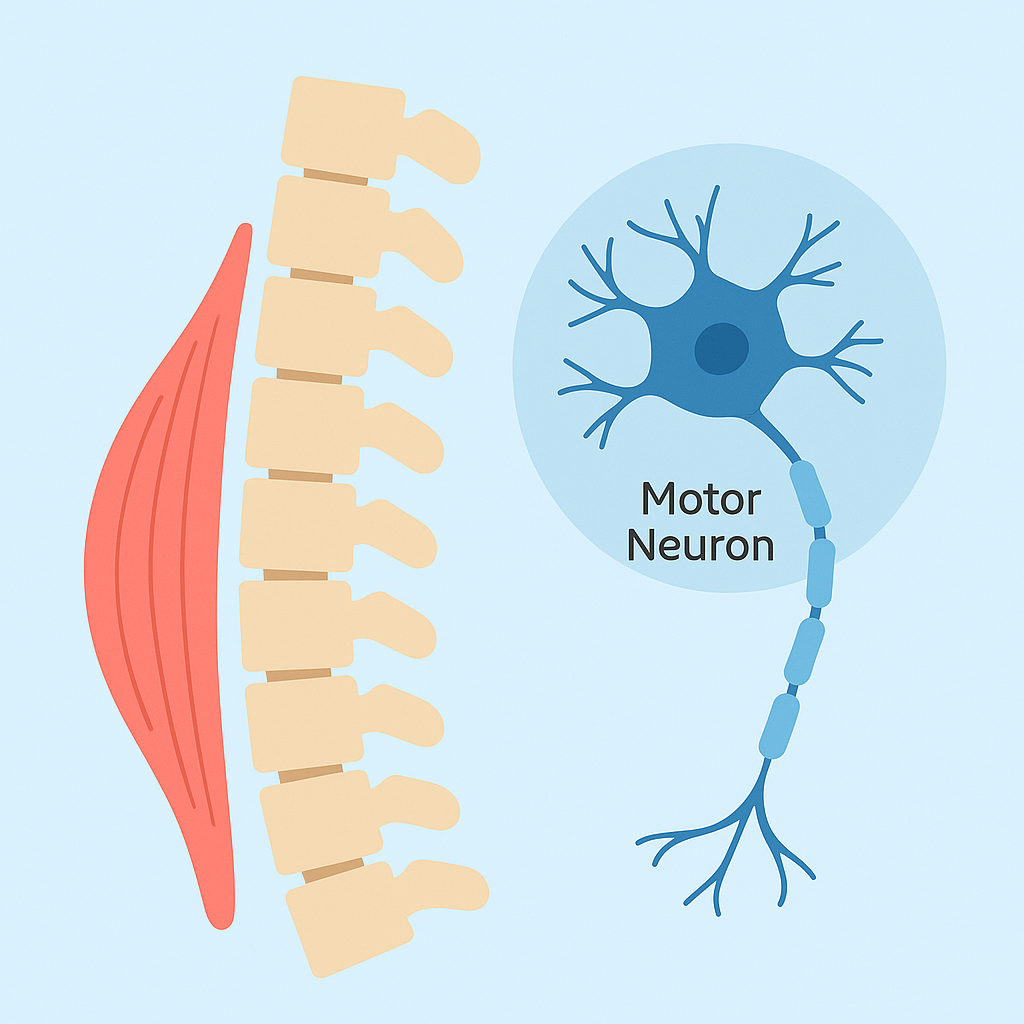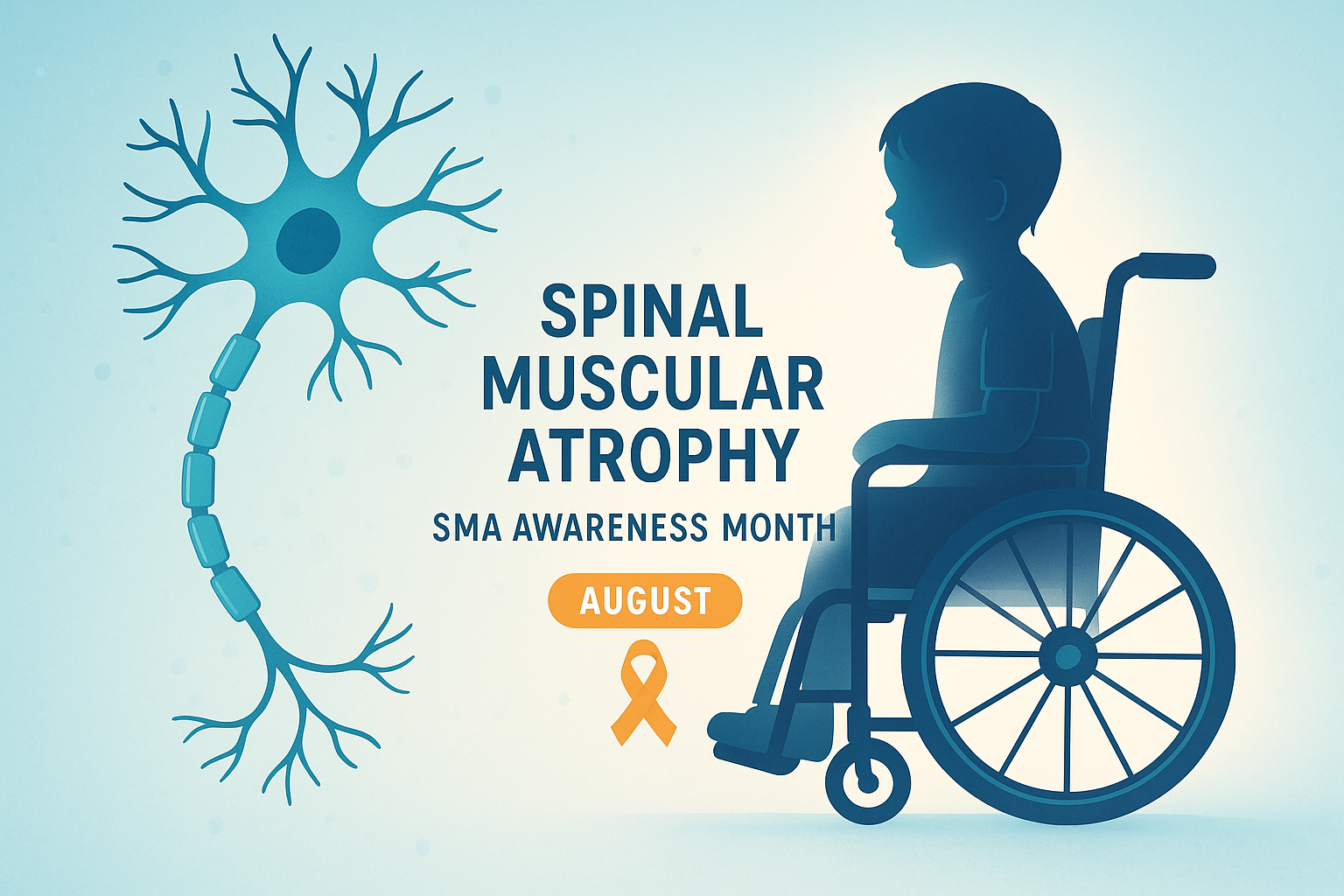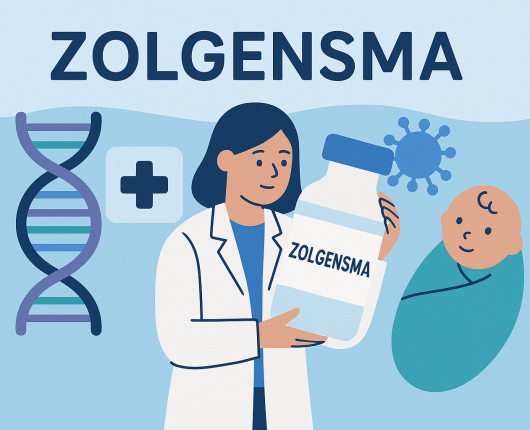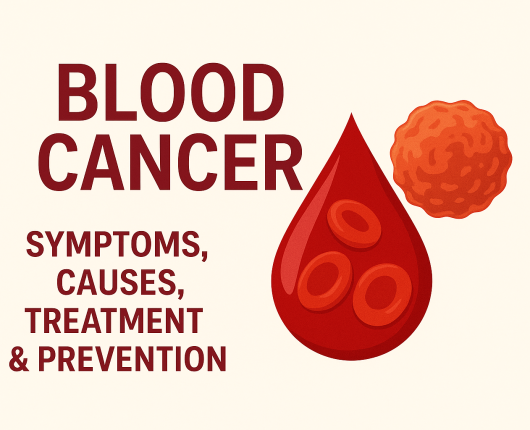What is Spinal Muscular Atrophy (SMA)?
Spinal Muscular Atrophy, often called SMA, is a rare genetic disorder that weakens the muscles by affecting the motor neurons in the spinal cord. These motor neurons control voluntary muscle movement such as walking, breathing, and swallowing. When they stop working, muscles become weaker and waste away over time.

What Causes SMA?
SMA is caused by mutations in the SMN1 gene, responsible for producing the Survival Motor Neuron (SMN) protein. This protein is essential for the health of motor neurons. Without enough SMN protein, motor neurons gradually deteriorate, leading to progressive muscle weakness.
Types of Spinal Muscular Atrophy
SMA is categorized into four main types based on the age of onset and severity:
- Type 1 (Severe/Infantile SMA): Appears before 6 months of age. Infants may struggle to hold their head or sit without support.
- Type 2 (Intermediate SMA): Usually diagnosed between 6–18 months. Children can sit but may not walk unaided.
- Type 3 (Mild SMA): Symptoms develop after 18 months. Individuals can walk initially but may lose this ability later.
- Type 4 (Adult-Onset SMA): Symptoms appear in adulthood, usually after age 20, with milder progression.
Common Symptoms of SMA
- Muscle weakness in arms and legs
- Difficulty holding the head upright
- Trouble swallowing or breathing (in severe cases)
- Limited motor development in infants and children
- Reduced or absent reflexes
Treatment Options for SMA
Although SMA has no complete cure yet, modern medicine has brought effective treatments:
- Nusinersen (Spinraza): An injection into the spinal fluid that helps produce more SMN protein.
- Onasemnogene abeparvovec (Zolgensma): A one-time gene therapy designed for children under 2 years old.
- Risdiplam (Evrysdi): An oral liquid medication that helps maintain SMN protein levels.
Along with these, supportive therapies such as physiotherapy, respiratory support, nutritional guidance, and mobility aids greatly improve quality of life.
Living With SMA: Hope and Support
Thanks to early diagnosis and new treatments, children and adults with SMA are now living longer, healthier, and more independent lives. Emotional support, community awareness, and timely medical care make a significant difference for families.
How You Can Support SMA Awareness
- Spread Awareness: Share knowledge about SMA to help with early diagnosis.
- Encourage Screening: Genetic testing can identify risks early.
- Support Research: Donations and participation in clinical trials help advance new treatments.
- Stand with Families: Offering emotional and financial support reduces the burden on caregivers.
✨ Spinal Muscular Atrophy is challenging, but with awareness, medical advances, and community support, hope shines brighter every day.




